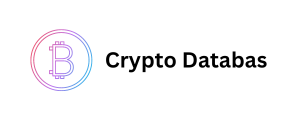In today’s digital landscape, email remains a powerful tool for communication and marketing. But for businesses and content creators alike, building an email list can feel like navigating a maze of legalities and ethical considerations. Here’s your guide to acquiring email addresses responsibly, keeping spam filters and data privacy regulations at bay.
Why Build an Email List?
Building an email list unlocks a treasure trove of benefits:
- Targeted Marketing: Businesses can segment How to Build a WhatsApp Number List their lists and send targeted campaigns, promoting products or services to relevant audiences.
- Nurturing Relationships: Bloggers and content creators can connect with readers, offer exclusive content, and build a loyal following.
- Community Building: Email lists can foster a sense of community, allowing you to connect with your audience on a deeper level.

The Ethical Imperative: Building Trust, Not Spam Folders
Building a sustainable email list hinges on ethical practices:
- Opt-in Forms – The Foundation: Create clear and concise opt-in forms on your website, social media pages, or blog. Explain what subscribers can expect (e.g., newsletters, updates) and obtain their explicit consent before adding them to your list.
- Lead Magnets – Offer Value, Get Emails: Entice potential subscribers with valuable resources like ebooks, cheat sheets, or webinars in exchange for their email addresses. This provides an incentive for users to subscribe while allowing you to collect relevant contact information.
- Content Marketing – Attract and Convert: Create high-quality content that resonates with your target audience. When readers find value in your work, they might be more likely to subscribe for future updates or insights.
Exploring Online Tools with Caution
While online tools can be helpful, prioritize ethical practices and responsible usage:
- Email Finders – A Double-Edged Sword: These tools can search for email addresses based on names and websites, but accuracy can be unreliable. Ensure the service complies with anti-spam laws (like CAN-SPAM) and avoid scraping emails in bulk. This can be seen as an intrusive practice and potentially violate regulations.
- Social Media Search – Look, Don’t Grab: Look for publicly listed email addresses on professional profiles (e.g., LinkedIn) or contact forms on company websites. Remember, unsolicited emails can be intrusive.
Forbidden Practices: Building Trust, Not a Blacklist
Certain practices can damage your reputation and land you in hot water:
- Buying Pre-made Lists: These lists often contain inaccurate or outdated information. Sending emails to unverified addresses is a recipe for spam filters and potential legal trouble.
- Scraping Emails – Inconsiderate and Illegal: Scraping emails from websites without permission is a violation of privacy laws and can damage your sender reputation.
Respecting Boundaries: Permission is Key
Always prioritize permission and data privacy:
- Clear Opt-in: Obtain explicit consent before adding someone to your list. Provide an easy unsubscribe option in every email.
- Data Security: Implement measures to protect collected email addresses from unauthorized access.
- Comply with Regulations: Familiarize yourself with data privacy regulations like GDPR (General Data Protection Regulation) and CAN-SPAM to ensure your email practices are compliant.
The Final Word: Quality over Quantity
Building an email list requires a sustainable approach. By focusing on ethical techniques, offering value to your audience, and respecting privacy, you can attract DIGITAL MARKETING LEAD GENERATION JOB DESCRIPTION
subscribers who are genuinely interested in your content or offerings. Remember, quality over quantity is key when it comes to building a valuable email list. So, prioritize ethical practices and watch your list grow organically!


